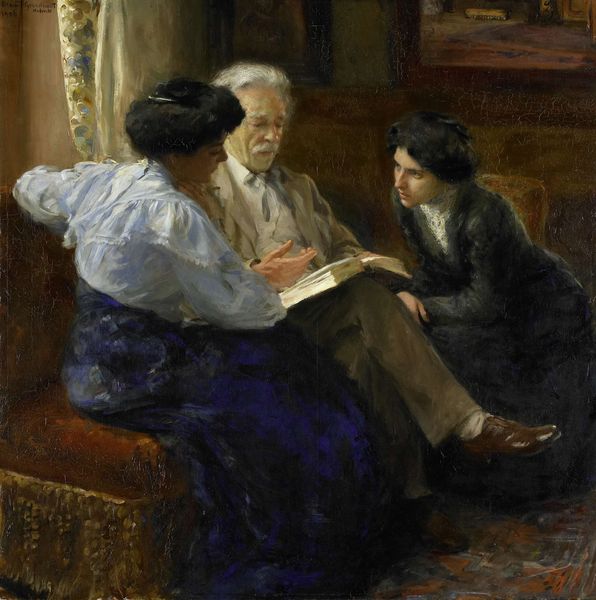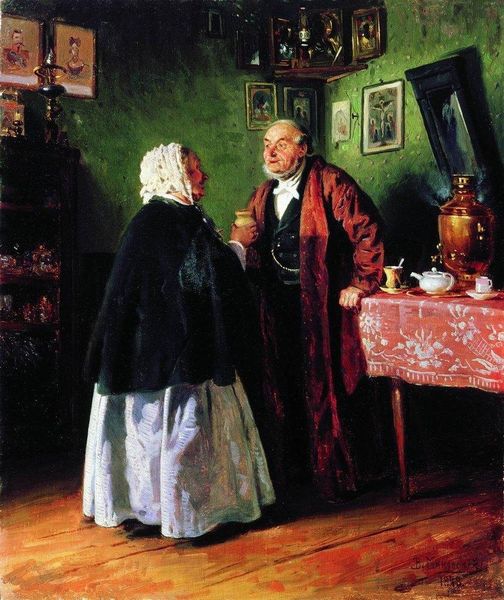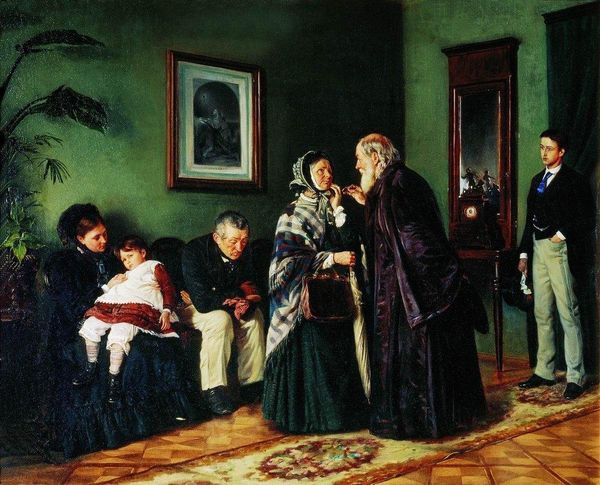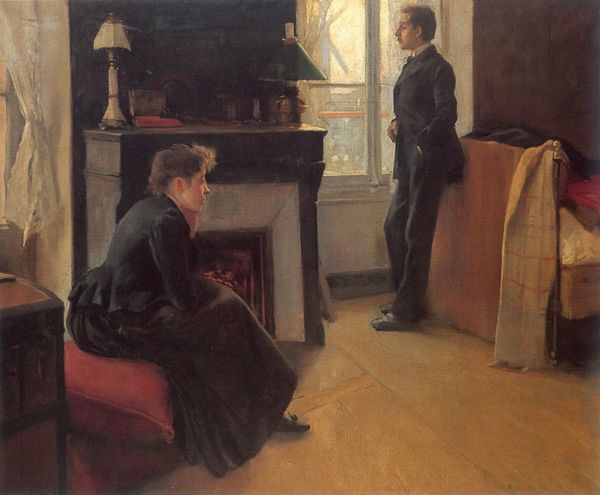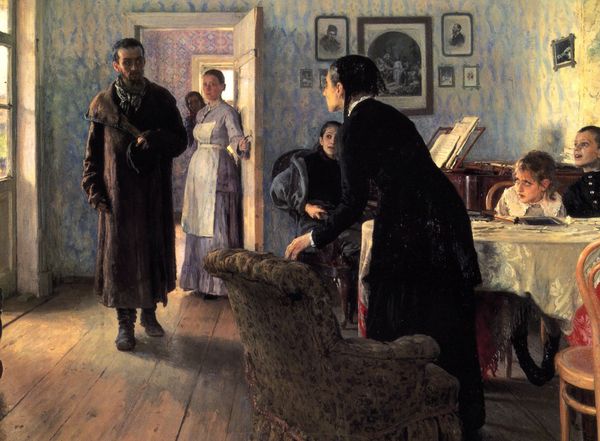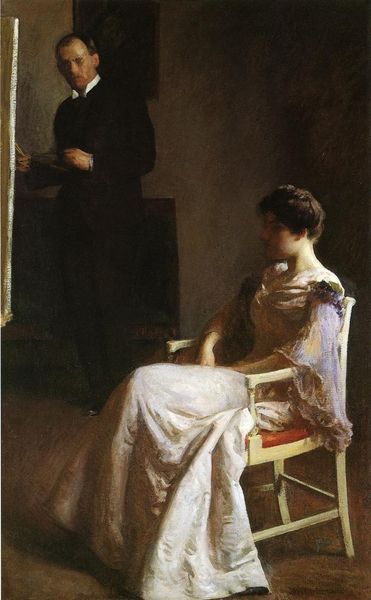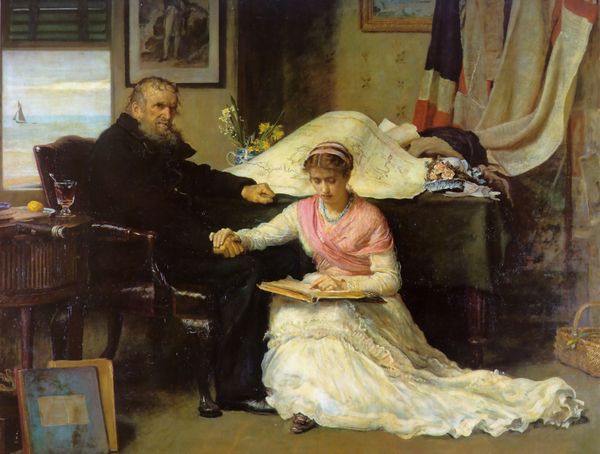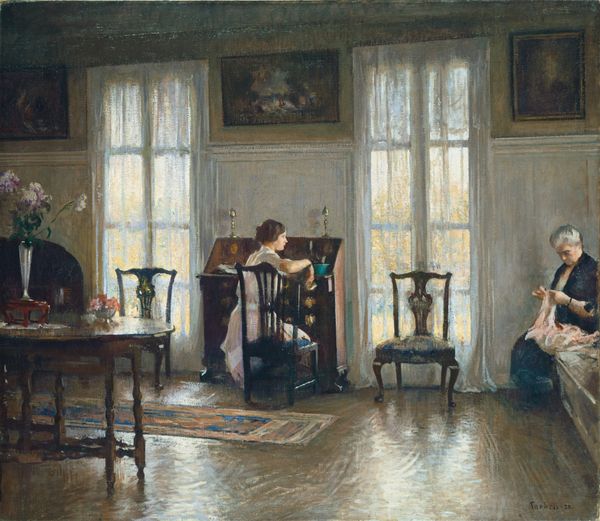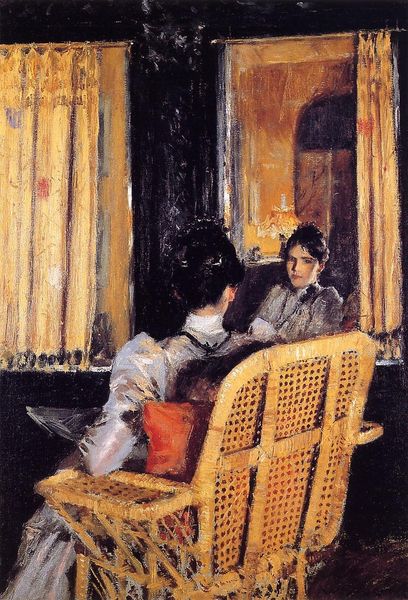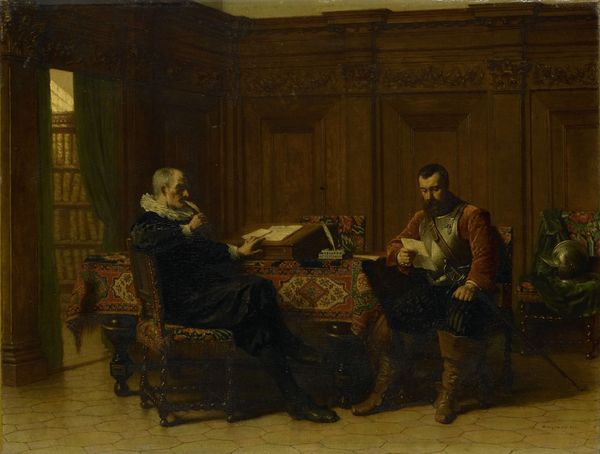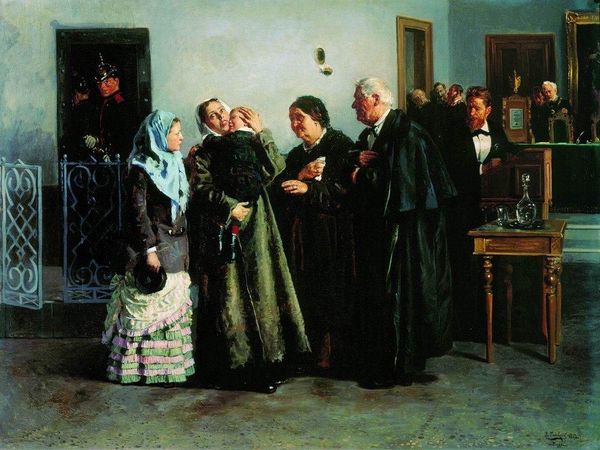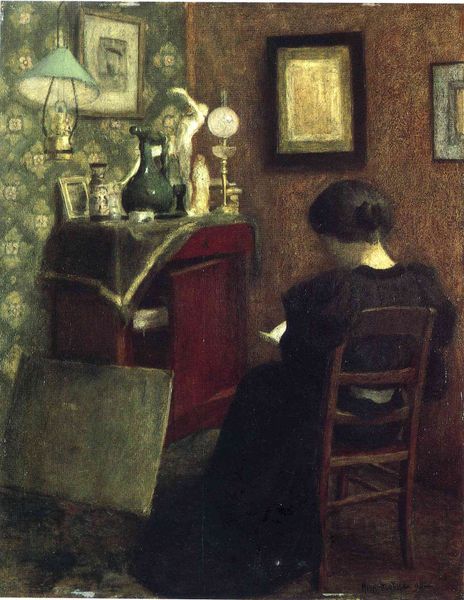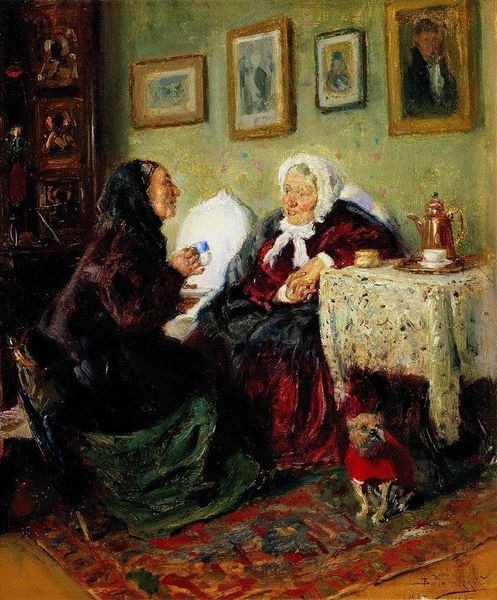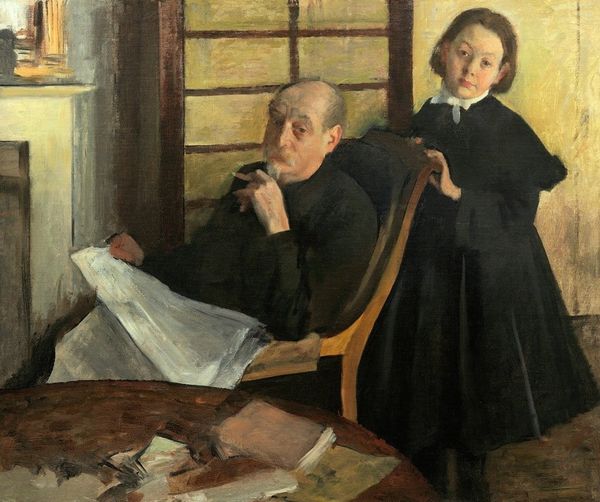
oil-paint
#
portrait
#
oil-paint
#
oil painting
#
studio composition
#
russian-avant-garde
#
genre-painting
#
portrait art
#
realism
Copyright: Public domain
Curator: Here we have Vladimir Makovsky's painting, simply titled "A Letter." Makovsky, a prominent figure of the Russian realist movement, masterfully captures intimate scenes of everyday life. Editor: My first impression is a deep sense of quiet unease. The colors are muted, and there’s a weightiness in the figures' posture, especially the woman with her back to us. The mood suggests something serious is unfolding. Curator: Indeed. Genre painting like this gained popularity, particularly in Russia, for its ability to reflect societal concerns and connect with ordinary people through relatable narratives. You see here an older gentleman intently reading the titular letter, the content and its impact a mystery. Editor: Letters, throughout history, have carried significant emotional and even spiritual weight. Think about the messages between loved ones during war, or sacred scriptures shared between communities. A letter isn't merely information; it is a vessel of connection and a potential catalyst for change. Here the woman's obscured face amplifies the uncertainty; her reaction is internalized, forcing us to focus on the implied emotions within the space. Curator: That is interesting. Considering the period, such scenes often highlight themes of social inequality, familial expectations, and the complex roles of men and women. The painting provides an immediate, domestic drama for public discussion. Editor: Notice how the artist carefully places the samovar and teacups, domestic objects holding ritual significance. Tea is not simply tea. Sharing it implies closeness, conversation, shared moments which contrast against the palpable tension arising now. They add to the overall reading of strained harmony disrupted. Curator: Furthermore, the technique employed, with visible brushstrokes and a slightly blurred effect, typical of realism at the time, serves to soften the scene while maintaining clarity in the essential details. Makovsky avoids idealized representations, choosing instead a straightforward depiction of the human condition. Editor: It really encapsulates the human capacity for both stoicism and emotional vulnerability within mundane situations. When viewed through that scope, "A Letter" ceases being only one family's business, evolving instead into something broadly personal for us all. Curator: Precisely! It encourages a thoughtful consideration of our own interpretations as social beings. What would you say it ultimately asks of its viewers then? Editor: To look for shared human experiences behind closed doors, maybe? In looking at objects and postures as keys that unlock bigger questions about communication, expectations, or perhaps secrets.
Comments
No comments
Be the first to comment and join the conversation on the ultimate creative platform.
